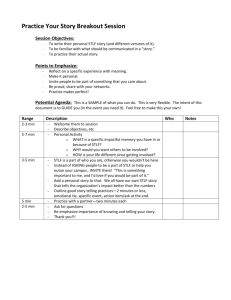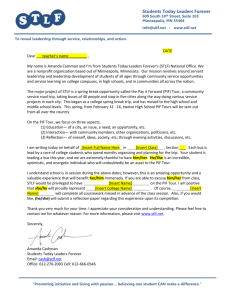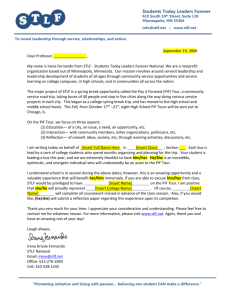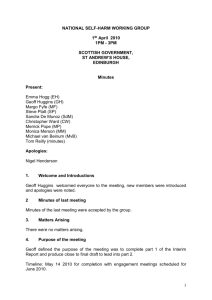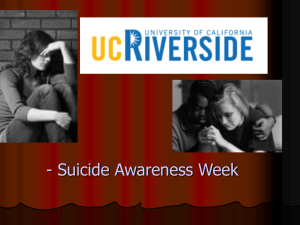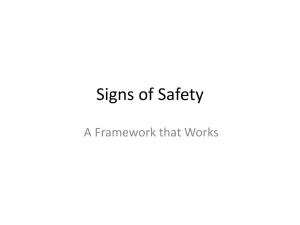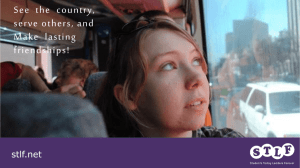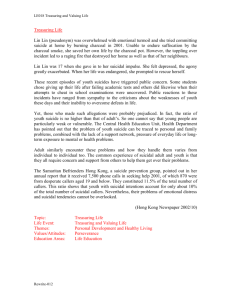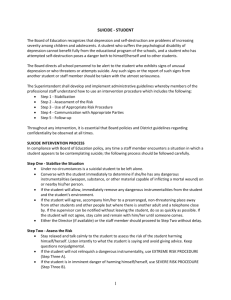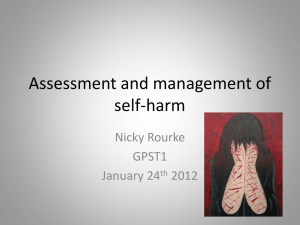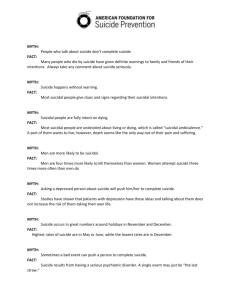Overview
advertisement
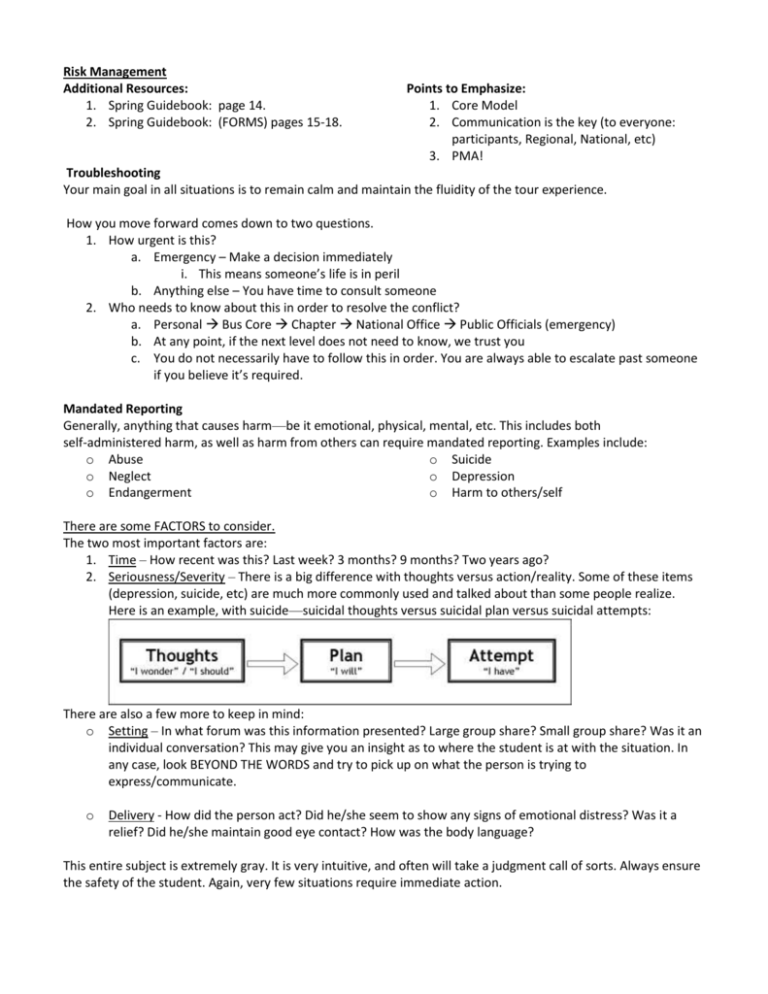
Risk Management Additional Resources: 1. Spring Guidebook: page 14. 2. Spring Guidebook: (FORMS) pages 15-18. Points to Emphasize: 1. Core Model 2. Communication is the key (to everyone: participants, Regional, National, etc) 3. PMA! Troubleshooting Your main goal in all situations is to remain calm and maintain the fluidity of the tour experience. How you move forward comes down to two questions. 1. How urgent is this? a. Emergency – Make a decision immediately i. This means someone’s life is in peril b. Anything else – You have time to consult someone 2. Who needs to know about this in order to resolve the conflict? a. Personal Bus Core Chapter National Office Public Officials (emergency) b. At any point, if the next level does not need to know, we trust you c. You do not necessarily have to follow this in order. You are always able to escalate past someone if you believe it’s required. Mandated Reporting Generally, anything that causes harm—be it emotional, physical, mental, etc. This includes both self-administered harm, as well as harm from others can require mandated reporting. Examples include: o Abuse o Suicide o Neglect o Depression o Endangerment o Harm to others/self There are some FACTORS to consider. The two most important factors are: 1. Time – How recent was this? Last week? 3 months? 9 months? Two years ago? 2. Seriousness/Severity – There is a big difference with thoughts versus action/reality. Some of these items (depression, suicide, etc) are much more commonly used and talked about than some people realize. Here is an example, with suicide—suicidal thoughts versus suicidal plan versus suicidal attempts: There are also a few more to keep in mind: o Setting – In what forum was this information presented? Large group share? Small group share? Was it an individual conversation? This may give you an insight as to where the student is at with the situation. In any case, look BEYOND THE WORDS and try to pick up on what the person is trying to express/communicate. o Delivery - How did the person act? Did he/she seem to show any signs of emotional distress? Was it a relief? Did he/she maintain good eye contact? How was the body language? This entire subject is extremely gray. It is very intuitive, and often will take a judgment call of sorts. Always ensure the safety of the student. Again, very few situations require immediate action. Action 1. Have a conversation with the person you are concerned for in a public space a. Pull them off to the side but not entirely secluded i. There should always be someone who could see you if they walked by ii. This helps the person you are talking to feel more at ease and less pressured by you 2. Explain that your responsibility as a leader is to speak with people about anything that is potentially harmful to them 3. Our responsibility is to offer support and resources with which they can consult a. Keep in mind the urgency at hand b. Anything beyond connecting them to professionals is optional and, occasionally, irresponsible Recap This stuff is not easy and everything we’ve just laid out is a guide for you to make good decisions within. We trust you to handle these situations with grace and sensitivity. Finally, anything that causes harm can require mandated reporting. When you hear something that makes you think twice…pay attention to that. It’s always for someone’s benefit and we want you to treat serious things with the weight they require. Zero Tolerance STLF has a Zero Tolerance Policy regarding the possession and use of alcohol, drugs, or other illegal substances, regardless of age, gender, culture, etc. Forms o In addition to the participant waiver, participation agreement and health information forms we have an early release form. Core decision (Chapter & Bus) o No one should ever be sent home without consulting, at least, these two populations. Language: (STLF does not believe that someone being sent home should permanently damage their relationship with the organization or the other people on the tour) o Zero Tolerance is about inclusivity, not judgment. o Holding people accountable to an action, not mark on character. o STLF doesn’t record this, just about accountability. o We do not report to school, police, etc. Coordinate travel, work with RC & Nash. We believe in you! You can do it!
